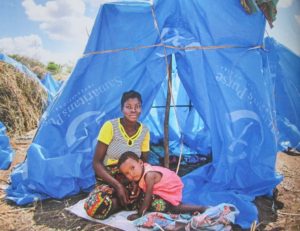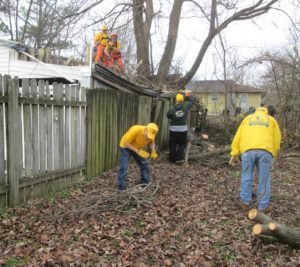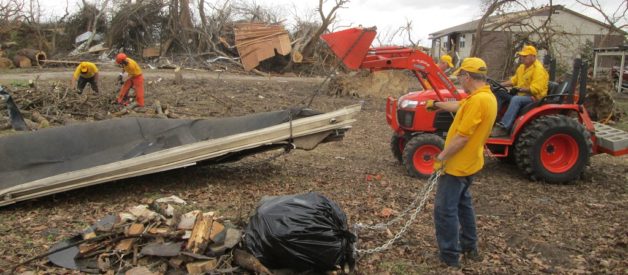Last year I read David Platt’s book, Radical: Taking Back Your Faith from the American Dream, and wrote about it in my post on May 27, 2021. Since I said I was going to do the year-long challenge he proposed regarding radical living for Jesus, I want to share with you the results of my year’s commitment.

In Radical, Platt offers the challenge to help his readers test the “bold claims about our purpose in life that are contained in the gospel.” He calls it the Radical Experiment. He says if we discover the reality of a claim, we are more likely to change our life around that truth and “it will turn your life upside down—or, really, right side up.” I was interested in that right side up part; I’ve done enough upside down living.
I’m happy to say I stuck with it all 365 days. I was concerned about it becoming just another check-off list because I live by daily lists to conquer. So I guarded against that with an intentional fresh approach each day. It helped knowing there was an ending point a year away.
Following are the five components of the challenge, what I did for each, and my reflections.
1. Pray for the entire world.
Why part of the challenge: There are billions of people in the world without Christ, and more than a billion of them have never heard the gospel. The need is great. It is through the prayers of God’s people that his power is released to accomplish his purposes in the world.
What I did: I used Operation World, the free online version of a book mentioned in Radical. The seventh edition of the book was published in 2010. The online information didn’t seem to be totally current but was still very useful. Each day one or two countries are presented with spiritual, political, and cultural information. I could see in real time how many others were praying, which might be over 1,000 by the end of the day. By the end of the year I had prayed for every country in the world.

Reflection: Praying for every country enabled me to pray for every person in the world. Though I certainly won’t remember the details for each country, it was enlightening to see that nations around the world have many similar needs, regardless of their varied cultures. This will direct my prayers going forward.
Following are common prayer needs I discovered:
- Workers to be sent into the harvest field—Before Jesus told his disciples to go to people in need, he said to pray for “the Lord of the harvest . . . to send out workers” (Matthew 9:38). Platt says God’s “concern was that his followers would not go to the lost.” Prayer opens hearts to hear God’s voice and obey.
- Training for pastors and discipleship for new converts—Often men come to know Jesus and immediately begin preaching while knowing very little of what the Bible says. Pastors and other converts need to know God’s Word or the enemy will steal what they do have.
- Revival among believers—In many countries where Christianity is the predominate religion, church attendance is extremely low. The people are only nominal believers, claiming Christianity because of tradition and not from a personal connection with Jesus.
- Righteous leadership—Leaders are needed who are dedicated to serving the people of their nations, but instead many are interested in power and prosperity for themselves. As a result, economic and social problems are not addressed.
- Solutions to problems in society—For country after country, I read about the same problems: broken homes, substance abuse, pornography, human trafficking, materialism, homelessness, crime, poverty.
- Bibles in their heart languages—More than 165 million people don’t have even one scripture translated into their heart language. Of those who do, sometimes an entire village has to share one Bible.
- Unity among the believers of all denominations—It is crucial that various groups of believers in a country work together to share the gospel and meet physical needs. Their unity in spite of different methods will draw people because of the contrast to the dissonance in the world. The night before Jesus was crucified, he prayed to his Father for the disciples and everyone else who would believe in him that “they be brought to complete unity to let the world know that you sent me and have loved them even as you have loved me” (John 17:23).
I may occasionally use Operation World again, but not on a daily basis. I have a prayer plan in which I pray for the world regularly, and I will use what I learned from Operation World.
2. Read through the entire Word.
Why part of the challenge: To live the radical life, we need to know God and how he wants us to live. That can be found by reading and studying his Word, which has the supernatural power to change us.

What I did: Out of the many reading programs available, I downloaded a two-year schedule from Family Research Council and doubled up. I chose it because it is a chronological reading and I like to do things in order. Having certain chapters scheduled every day for a year can potentially become a chore but I tried to read carefully, often out loud to keep my concentration, and be open to hearing what God might say to me through a particular passage.
Reflection: I’ve read straight through the Bible a few times before. Reading it multiple times reveals new things to me or old things in a new light, reinforces things I’ve learned, and increases my ability to locate certain scriptures. Reading the Bible in its entirety is a good way to see how it all fits together into one big story of God’s redeeming love for us. I will do this again in a few years, but for now I’ll get back into some deeper Bible studies.
3. Sacrifice your money for a specific purpose.
Why part of the challenge: Platt says if we make $50,000 a year we are wealthier than 99 percent of the world, while more than a billion people live in desperate poverty. Spending our money that would normally be spent on luxuries on things important to God instead helps us fight the battle against materialism.

What I did: Since I was doing this challenge on my own, I didn’t involve our household budget, only my personal allowance. I tend not to be a big spender on luxuries. In fact, I generally have a difficult time parting with my money for things I don’t need (unless I get too near a bookstore). So I‘m not sure that I spent less this past year. However, I was more aware of my spending and told myself no to some things I did consider.

Reflection: Although I was aware of and careful with my spending through the year, I’d forgotten the part about sacrificing for a specific purpose. So when I reread that section at the end of the challenge and discovered my error, I did my best to figure up what I might have spent. My estimate was 25 percent. I was excited to have 75 percent of my year’s allowance left to use “for a specific purpose.” It was an easy decision for me to divide it evenly between two ministries I believe greatly please God. American Bible Society’s mission is to make the life-changing message of God’s Word available to every person, and Samaritan’s Purse follows the example of Christ by helping those in need all over the world and proclaiming the hope of the gospel.
4. Spend your time in another context.
Why part of the challenge: Some of Jesus’ last words to his disciples before he ascended into heaven were “Go into all the world and preach the good news to all creation” (Mark 16:15). Leaving our place of comfort to share the gospel in a new place is a sacrifice that has a huge impact on the people we go to.

What I did: When I began this challenge, I immediately knew what I wanted to do, but I didn’t know if it was God’s plan as well. CW and I had been certified for 15 years with Kentucky Southern Baptist Disaster Relief (SBDR) but had never been able to participate due to work or family obligations. I asked God to make a way for us to do this.
It took nearly seven months, but finally our calendar was relatively free when there was a call for volunteers to clean up after tornados in western Kentucky. We jumped at the opportunity. Since then we have been able to do two more deployments, another tornado cleanup in Kentucky and cleanup after flooding in West Virginia.
Reflection: The experiences with DR have definitely stretched me out of my context and far out of my comfort zone. I like to know things ahead of time, but every situation in DR is new and fluid. I treasure my privacy, but the necessary communal living doesn’t offer much of that. I am a quiet introvert, but there is constant social activity with new people each time.

However, the experiences are extraordinary, being the hands and feet of Jesus, showing his love to people overwhelmed by life. They ask why we are there when we don’t have to be, and we can say that Jesus sent us to show them how much he loves them. Going changes hearts. We hope to continue answering the callouts. Our DR bags are in a constant state of “partially packed.”
5. Commit your life to a multiplying community.
Why part of the challenge: To live a radical life for Jesus, we need to be committed to a like-minded community of believers who will support and encourage us.
What I did: CW and I were already blessed to be a part of a church that teaches the truths of the Bible and encourages us to study it for ourselves. It also clearly teaches that the gospel is not only for ourselves but to be taken outside the walls of the building into our everyday lives and to wherever God may lead us.
Reflection: As I am writing this, I realize that the people CW and I have met at the disaster relief deployments are another community we have become a part of. Although it’s never the exact same group of people, they are always a radical bunch, sometimes traveling hundreds of miles to give of themselves to strangers to demonstrate God’s love. Serving with them nurtures us in our abandonment to God.
The Radical Experiment has been a year well spent in exploring and practicing elements of a radical life lived for Jesus. I have a long way to go, but this experience has definitely dialed me further around toward the upright position. Every degree is a victory for God’s Kingdom.

Scripture quotations are from NIV.
Quotations other than scripture are from Radical.




Brenda+Murphy
June 15, 2022Wow Bonnie, that was so interesting and I’m impressed. It is definately a commitment when it takes a year. I love hearing the follow-up and how it turned out for you, thanks for sharing. It all sound stretching, and I guess that was part of the point, lol. Yes, some of us definately love our comfort zone. 😁
bspencer
June 15, 2022You’re right, Brenda. Radical = stretching! Unless maybe you’re born with a slew of “adventure” genes, which I wasn’t. But it’s a good stretching, growing little by little into who God sees me to be.
I’m glad you enjoyed reading about my year.
Robert Franklin
July 3, 2022Bonnie,
Thank you for faithfully pursuing Christ and also for allowing the Spirit to lead you into a different life of action than you are used to leading. I think many see being radical as doing something outrageous when the reality is that simple daily obedience is God’s demand. Obedience may lead us out of the boat in the middle of a storm or just across the street to a neighbor. Stay radical. God will bless many through you.
bspencer
July 3, 2022Thank you, Robert, for your beautiful words of encouragement–not only for me, but for others who may read this.